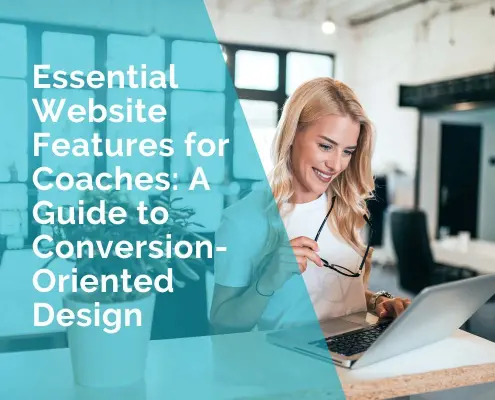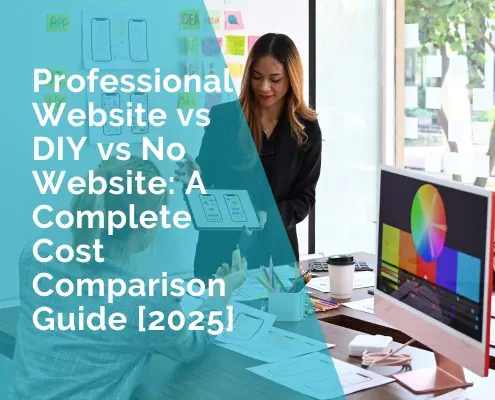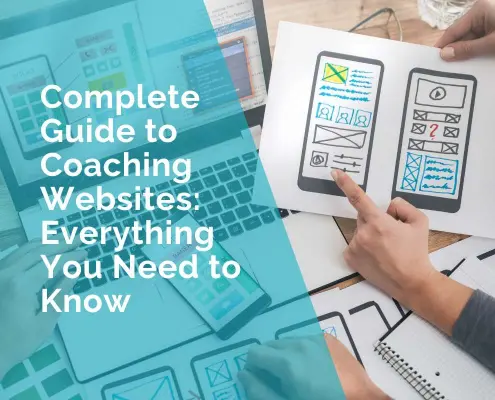How AI Can Help Scale Your B2B Offer
Are you looking to take your B2B offer to the next level? You can do just that with the power of artificial intelligence (AI).
AI is taking the world by storm. You have undoubtedly heard about AI tools available everywhere to help all facets of business.
By automating tasks, personalizing marketing efforts, and making better decisions, AI can help you scale your B2B offer like never before.
This article will explore how AI can revolutionize your business strategy and drive growth.
Get ready to harness the potential of AI and unlock new opportunities for your B2B success.
Key Takeaways
- AI in B2B streamlines processes and enables data-driven decisions.
- AI automates tasks and processes, saving time and increasing efficiency.
- AI enables personalized marketing and sales efforts through segmentation and targeted campaigns.
- AI analytics and predictive modelling help in making data-driven decisions for business growth.
What Is AI, and How Is It Being Used in B2B?
AI is revolutionizing the B2B industry, allowing you to streamline processes and make data-driven decisions. Artificial Intelligence, or AI, is the simulation of human intelligence in machines programmed to think and learn like humans. In the B2B context, AI is used in various applications to enhance marketing, sales, and operational processes.
In B2B marketing, AI analyzes vast amounts of customer data and generates insights for targeted campaigns. AI algorithms can identify patterns and preferences, enabling you to personalize messaging and optimize marketing strategies. This technology also aids lead generation by automatically qualifying and scoring leads based on predefined criteria.
In B2B sales, AI-powered tools assist in lead nurturing and conversion. Chatbots, for example, can engage with potential customers, answer queries, and even recommend products or services. AI algorithms can also analyze sales data to identify trends, forecast sales, and recommend pricing strategies.
Furthermore, AI applications extend to B2B operations, which can automate repetitive tasks, such as inventory management and supply chain optimization. By leveraging AI, businesses can improve efficiency, reduce costs, and enhance overall productivity.
What Are the Benefits of Using AI To Scale Your B2B Offer?
Using AI to scale your B2B offer can bring numerous benefits to your business.
You can automate repetitive tasks, increase operational efficiency, and enhance decision-making processes by leveraging AI technologies.
This enables you to streamline operations, optimize resource allocation, and drive business growth.
Businesses striving to utilize Artificial Intelligence might also benefit from data visualization tools to better understand their customer data. These tools can transform complex datasets into comprehensive visuals, enabling businesses to spot trends and make strategic decisions efficiently. It’s essential to pair AI with effective data visualization strategies such as learning Tableau, a leading platform for creating insightful dashboards.
To support this learning journey, consider engaging with structured Tableau courses from DataCamp to ensure your team is equipped with the necessary skills for successful implementation.
Who Should Read This Blog Post?
If you’re wondering who should read this blog post, it’s perfect for B2B business owners, agencies, or marketers looking to scale their B2B offers.
As a B2B business, understanding your target audience is crucial for success. AI applications can help you analyze customer data and identify patterns, allowing you to create personalized marketing strategies that resonate with your audience.
Regarding scaling strategies, AI can automate tasks, optimize processes, and improve efficiency, ultimately helping you reach more customers and increase revenue.
However, implementing AI in B2B marketing does come with its challenges. Various challenges must be addressed, from data privacy concerns to integrating AI with existing systems.
How AI Can Help You Automate Tasks and Processes
You can automate tasks and processes with the help of AI, allowing you to streamline your operations and save time. By leveraging AI technologies, you can optimize workflows and reduce the amount of manual work required, ultimately improving productivity and increasing efficiency.
Here are three ways AI can help you automate tasks and processes:
Automating Lead Generation and Qualification: AI can analyze customer data and behaviour patterns to identify and qualify potential leads based on predefined criteria. This automation simplifies the lead generation process, enabling your sales team to focus on the most promising leads. Scraped Indeed data can enrich this process, providing a deeper understanding of market demands and the competitive landscape, thus refining your lead qualification criteria
Enhancing Customer Relationship Management (CRM): AI-powered CRM systems can automatically gather and analyze customer data from multiple sources, providing valuable insights that can be used to personalize interactions and improve customer satisfaction. This automation eliminates manual data entry and allows your team to provide more targeted and effective customer support.
Streamlining Marketing Automation: AI can analyze customer preferences and behaviours to create personalized marketing campaigns and automate targeted content delivery. By automating repetitive marketing tasks, you can free up your marketing team to focus on strategic initiatives and improve the overall effectiveness of your marketing efforts.
How AI Can Help You Personalize Your Marketing and Sales Efforts
With AI, you can tailor your marketing and sales efforts to individual customers, increasing engagement and driving conversions. Personalization strategies are crucial in today’s competitive market, as customers expect personalized experiences that align with their interests and preferences.
AI can help you achieve this by utilizing customer segmentation and targeted campaigns. By analyzing customer data, AI algorithms can identify patterns and trends, allowing you to create segments based on demographic, behavioural, and psychographic characteristics. These segments enable you to deliver highly targeted campaigns that resonate with each customer segment, increasing the likelihood of conversion.
Additionally, AI-powered recommendation engines can provide personalized product recommendations based on customer preferences and past behaviour. This not only enhances the customer experience but also increases the chances of upselling and cross-selling.
Furthermore, AI can automate various sales processes, freeing up valuable time for your sales team to focus on building relationships and closing deals. By automating tasks such as lead scoring, email outreach, and follow-ups, AI enables your sales team to work more efficiently and effectively.
Incorporating AI into your marketing and sales efforts can revolutionize personalization, enhance customer engagement, and drive conversions.
How AI Can Help You Make Better Decisions
When using AI, you can leverage data analysis to make more informed decisions for your business. AI decision-making, AI analytics, AI optimization, AI predictive modeling, and AI pricing strategies can all play a crucial role in helping you make better choices that drive success.
Here are three ways AI can aid in your decision-making process:
AI analytics: With AI-powered analytics tools, you can analyze vast amounts of data from multiple sources to gain valuable insights. AI algorithms can identify patterns, trends, and correlations that humans may miss, allowing you to make data-driven decisions based on accurate and up-to-date information.
AI predictive modeling: By using AI predictive modeling techniques, you can forecast future outcomes and trends with a higher degree of accuracy. AI algorithms can analyze historical data and identify patterns to predict customer behaviour, market trends, and business performance. This enables you to anticipate potential risks and opportunities, giving you a competitive edge in the market.
AI optimization: AI can help optimize various aspects of your business, such as pricing and marketing strategies. With AI algorithms, you can analyze market dynamics, competitor pricing, and customer preferences to determine the optimal pricing strategy that maximizes revenue and profitability. AI can also optimize your marketing efforts by identifying the most effective channels, messages, and campaigns to reach your target audience.
Let’s face it: the more correct decisions you make in business, the faster you will get to where you want to be. AI is a powerful tool that can help you make better decisions quickly. And when you’re making better-informed decisions, your B2B offers will be much better.
Examples of How AI Can Help Scale Your B2B Offer
AI provides numerous new opportunities to scale your B2B offer. From lead generation automation to customer relationship management enhancement, marketing campaign optimization, sales forecasting improvement, and customer support automation, AI can revolutionize your business processes and drive growth.
Identify Customer Data Patterns
AI can analyze and identify patterns in customer data, allowing for more targeted marketing campaigns and increased sales. In lead generation automation, AI can help you automate the process of identifying and qualifying potential leads. By analyzing data from various sources like your website, social media, and email lists, AI can free up your sales team to focus on high-value activities, ultimately boosting your chances of closing deals.
Automating Customer Relationship Management Tasks
Regarding enhancing customer relationship management, AI can be a game-changer. By automating tasks like lead nurturing, customer segmentation, and opportunity tracking, AI can help you manage your customer relationships more effectively. This, in turn, can lead to improved customer retention and loyalty rates.
Marketing Campaigns
AI can also optimize your marketing campaigns. By analyzing customer data, AI can target the right audience with the right message at the right time. This level of personalization can significantly enhance the effectiveness of your marketing efforts and improve your return on investment.
Sales Forecasting
AI can also improve your sales forecasting. AI can help you make more accurate sales predictions by analyzing historical data and identifying trends and patterns. This valuable insight can inform your business decisions, such as inventory stocking and resource allocation, leading to better outcomes.
Customer Support
Furthermore, AI can automate customer support tasks. AI can provide better customer support by automating functions like answering customer questions and resolving issues. This, in turn, can boost customer satisfaction and loyalty rates.
Here are some specific examples of how AI is being used by B2B businesses today:
- Amazon: They use AI to personalize its product recommendations for customers. This helps Amazon increase sales and customer satisfaction.
- Salesforce: Uses AI to help sales reps qualify leads and close deals. This helps Salesforce increase sales and improve the efficiency of its sales team.
- Zendesk: Uses AI to automate customer support tasks, such as answering customer questions and resolving issues. This helps Zendesk to improve customer satisfaction and reduce costs.
These are just a few examples of how AI is being used by B2B businesses today. As AI continues to evolve, we can expect to see even more ways that it can be used to help B2B businesses scale their offers and achieve their business goals.
AI is taking the world by storm, and if you want to get ahead of the competition, you need to use AI in your B2B offers and many other B2B facets.
AI Tools Your B2B Offer Should Consider
If you want to stay ahead in this fast-paced world, you’ll need the right tools. AI tools are helping B2B offers and agencies streamline and enhance their productivity like never before. Here is a list of the top AI tools your B2B offer should consider investing in.
Lead Generation and Qualification
Leadfeeder: Identify and track companies that have visited your website.
LinkedIn Sales Navigator: Find and connect with potential customers on LinkedIn.
Clearbit: Enrich your customer data with company insights and contact information.
ZoomInfo: Find and connect with potential customers and decision-makers.
Sales Hacker: Generate leads and close deals with the help of sales experts.
Customer Relationship Management (CRM):
Salesforce: Manage your customer relationships and sales pipeline.
HubSpot: Manage your customer relationships, marketing, and sales in one place.
Zoho CRM: Manage your customer relationships, sales, and marketing on a budget.
Pipedrive: Manage your customer relationships and sales pipeline visually.
Microsoft Dynamics CRM: Manage your customer relationships, sales, and marketing for large businesses.
Marketing Automation
Marketo: Automate your marketing campaigns and nurture leads.
HubSpot Marketing Hub: Automate your marketing campaigns, nurture leads, and track your results.
Pardot: Automate your marketing campaigns and nurture leads.
Drip: Automate your email marketing and nurture leads.
ActiveCampaign: Automate your marketing campaigns, nurture leads, and sell online.
Sales Forecasting
Salesforce Einstein: Predict future sales and identify growth opportunities.
HubSpot Predict: Predict future sales and identify sales opportunities.
Zoho CRM Forecasting: Predict future sales and identify sales opportunities.
Pipedrive Forecast: Predict future sales and identify sales opportunities.
Microsoft Dynamics CRM Sales Insights: Predict future sales and identify sales opportunities.
Customer Support
Intercom: Provide live chat support to your customers.
Zendesk: Provide customer support through email, phone, and live chat.
Freshdesk: Provide customer support through email, phone, and live chat.
LiveChat: Provide live chat support to your customers.
Drift: Provide live chat support to your customers and generate leads.
Data Analysis and Decision-making
Tableau: Create data visualizations and dashboards to analyze your data.
Power BI: Create data visualizations and dashboards to analyze your data.
Qlik Sense: Create data visualizations and dashboards to analyze your data.
Looker: Create data visualizations and dashboards to analyze your data.
Sisense: Create data visualizations and dashboards to analyze your data.
Some of these tools offer AI and non-AI features, but they all have AI capabilities that can help you scale your B2B offer.
Conclusion
Integrating AI into your B2B operations can significantly enhance scalability and efficiency.
While some argue that AI lacks the human touch, it’s important to remember that AI isn’t meant to replace human interaction but rather to enhance it.
By automating tasks, personalizing marketing efforts, and providing data-driven insights, AI enables businesses to make better decisions and ultimately scale their B2B offers with precision and strategic advantage.
Embracing AI technology is the key to staying competitive in today’s rapidly evolving business landscape.
***
Author Bio
Andrew Dunn is a serial business builder with over seven years of experience growing businesses. He founded INDMND.com, providing valuable insights for business owners to leverage technology to 10x their businesses. He is passionate about scaling businesses using SEO and content marketing.











